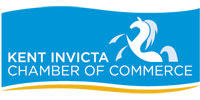Business Secretary, Kwasi Kwarteng, has announced that new laws and a Code of Practice are being introduced to resolve the remaining commercial rent debts accrued because of the pandemic.
Commercial tenants are protected from eviction until 25 March 2022, thanks to Government action last year to provide firms with breathing space and help protect jobs when certain businesses had to close in full or in part during the pandemic. This provides time for landlords and tenants to negotiate how to share the cost of commercial rent debts caused by the pandemic.
Since 9 November, these negotiations have been underpinned by a new Code of Practice, providing landlords and tenants with a clear process for settling outstanding debts before the new arbitration process comes into force.
The Code sets out that, in the first instance, tenants unable to pay in full should negotiate with their landlord in the expectation that the landlord waives some or all rent arrears where they are able to do so.
From 25 March 2022, new laws introduced in the Commercial Rent (Coronavirus) Bill, introduced in Parliament on 9 November, will establish a legally-binding arbitration process for commercial landlords and tenants who have not already reached an agreement, following the principles in the Code of Practice. Subject to Parliamentary passage, this will come into force next year.
The Bill will apply to commercial rent debts related to the mandated closure of certain businesses such as pubs, gyms and restaurants during the pandemic. Debts accrued at other times will not be in scope.
These laws will come into force in England and Wales, and Northern Ireland will have a power in the Bill to introduce similar legislation.
The result of the arbitration process will be a legally-binding agreement the landlord and tenant must adhere to, resolving rent arrears disputes and helping the market return to normal as quickly as possible.
The Government is also protecting commercial tenants from debt claims, including County Court Judgements (CCJs), High Court Judgements (HCJs) and bankruptcy petitions, issued against them in relation to rent arrears accrued during the pandemic.
This measure will provide further protection to businesses which had to close and accumulated debts during the pandemic, while protections from forfeiture for business tenancies are in place under the Coronavirus Act 2020.
Business Secretary Kwasi Kwarteng said, "Today’s measures provide commercial landlords and tenants with the clarity and certainty they need to plan ahead and recover from the pandemic.
"We encourage landlords and tenants to keep working together to reach their own agreements ahead of the new laws coming into place, and we expect tenants capable of paying rent to do so."
Kate Nicholls OBE, ceo of UKHospitality said, "We welcome the publication of the updated Code of Practice. Vitally important is the emphasis on ongoing negotiation to share the burden of the impact of lockdowns and restrictions that prevented hospitality businesses from trading for so much of the last 18 months. It is in the long-term interests of landlords and tenants to come together and find solutions that ensure business survival and that do not undermine the economic recovery. We share Government’s view that arbitration should be a last resort and this process must take into account the exceptional and existential level of pain that hospitality businesses have faced over the last 18 months. It must not impact this industry’s ability to rapidly recover and create jobs throughout the country."
Helen Dickinson OBE, Chief Executive of the British Retail Consortium, said, "The overwhelming majority of retailers with stores just want the breathing space to trade their way out of the debt unavoidably built up during the pandemic and a constructive agreement with their landlord.
"While we support the principle of compulsory arbitration, the devil will be in the detail on issues around what tenant viability really means in practice and the power of arbitrators. We will engage closely and constructively with Government to help ensure their proposals protect otherwise viable businesses, secure the recovery, and protect jobs."
Melanie Leech ceo of British Property Federation said, "Property owners and their tenants should be wholly focused on working together to continue the economic recovery from the Covid-19 pandemic. The majority have already reached agreement on the treatment of Covid-related rent arrears, with millions of pounds of support being provided by property owners to tenants in distress. The publication of an updated Code of Practice is a clear signal and framework for the minority who have not yet done so, to come together, reach agreement and look to the future."
Survey data from the British Property Federation indicates that agreement has been reached on the treatment of rent arrears in the vast majority of cases - more than 80% - since the start of the pandemic.
The announcement follows the Autumn Budget which included further measures to support commercial landlords and tenants. This includes reducing the burden of business rates in England by freezing the business rates multiplier for a further year - a tax cut worth £4.6 billion over five years – and introducing a 50% business rates discount for the retail, hospitality, and leisure sectors in England.
Written by Department for Business, Energy and Industrial Strategy
